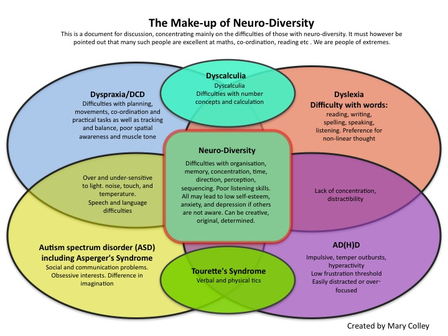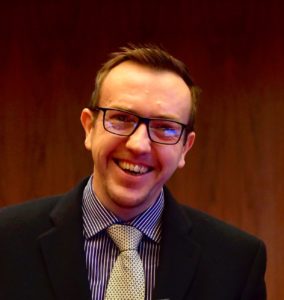Screening
Recent advances in medical science mean that it is now easier than ever to predict the likelihood of medical conditions companies like 23&me offer direct to consumer screening which can highlight the probability of certain genetically determined conditions.
Other screening tests are also available via medical professionals that cover a range of different conditions such as searching for the BRCA gene for breast cancer, prenatal testing for downs and spinabifida have existed for many years but either lacked accuracy or were invasive and had a risk of harm.
NIPT
NIPT (Non-invasive prenatal testing) is now able to forecast for Down’s syndrome with 99% accuracy. The reduced risk will surely increase the uptake of such screening.
Many people will see this as a desirable development; indeed newspapers in the UK hailed the introduction of the test as a victory for parents.
Advocates of NIPT say that screening is about informing parents and giving them choice. The reality is most women who are told that their foetus has tested positive for Down’s syndrome chose to terminate the pregnancy. If we look to Iceland where social provision for people with learning difficulties is very advanced and the prospects for a person with Down’s syndrome are good – 100% of women chose to terminate after a positive test for Down’s Syndrome.
It’s ironic that the number of terminations is on the increase just as advances in teaching and integration are enabling many people with Down’s syndrome to complete schooling and hold down jobs.
The Ethical Dilemma
We have moved from a time when people were institutionalised and denied education and the right to a normal life to a point where many people with Down’s can be fully integrated and productive members of society but despite these advances we face the real prospect that screenings will result in the disappearance of Down’s syndrome (also referred to as Trisomy 21), in a generation or so.
“To me people with Down’s syndrome are a type of person. It’s not a disease” Sally Phillips comedienne and the presenter of the BBC documentary “A World Without Down’s Syndrome”.
Only last week I attended a conference where Sara Ruh who has Trisomy 21 addressed an audience of 500 people talking about her outlook on life and work.

Picture by Eva Westerhoff
Whilst Down’s syndrome is the most high profile condition to be screened there is a lot of research being undertaken looking to screen for neurological differences such as autism and dyslexia. Google has teamed up with Autism speaks to research into a cure for autism.
Many people who are not directly affected see these developments as a wholly good thing but we should consider carefully the ethical and societal questions.
There is much evidence that diversity enriches society, diverse teams produce better results & ideas. Diversity goes beyond embracing differences of nationality, gender and religious beliefs. Our concept of diversity needs to embrace both disability and also the concept of neurodiversity. I believe that unless we make the case for the benefits to society of embracing disability and neurodiversity we risk losing some of the most potentially creative members of our society.
Neurodiversity & Creativity
Neurodiversity is a term that has been coined to describe the fact that people have brains which are wired differently (neurodivergence) from neuro typical people (your average Joe if there is ever such a thing as your average Joe). It encompasses a variety of different conditions such as ADHD, dyspraxia, dyslexia, dyscalculia, autistic spectrum and Tourette’s amongst others.
Some of our brightest thinkers are and have been neurodivergent individuals. There is speculation that Einstein was dyslexic, some of our brightest entrepreneurs such as Steve Jobs and Richard Branson are or were dyslexic, and many technology companies are now competing with intelligence agencies to recruit people on the autistic spectrum because they are able to formulate ideas and see patterns that others are unable to.
Being wired differently has its advantages as well as the disadvantages that have for so long been treated as a disability:

New technologies are revolutionising how we communicate and consume data.
We now live in a time where technology has enabled us to ameliorate many of the difficulties faced by people with dyslexia. I am dyslexic and I am dictating this article using speech recognition software, I also frequently use text-to-speech systems to help me with proofreading. Tools are now available which enable autistic people who are non-verbal to be able to communicate with complex vocabularies using symbols.
Previously many of these individuals were considered beyond help because they were not able to communicate; many were confined to institutions with no prospects of ever leaving. Now advocates for neurodiversity point out that it is merely a different method of communication that is required to access opportunities for these individuals. I work with a number of brilliant individuals who are autistic dyslexic and ADHD some of them are non-verbal some of the time and yet they make a fantastic contribution to the ongoing work in accessibility.
Only recently a fertility clinic in the UK decided to refuse sperm donations from people with dyslexia. They made the assumption that people would not want to have a child that was anything other than neuro typical, and yet we are in an age where the ability to read and write is less important than it was even 20 years ago, because technology can enable people to access information orally once more. For most of human history knowledge was transferred orally and as we move towards conversational interfaces with computers and artificial intelligence becomes commonplace I see that the requirement for reading and writing skills will dwindle over time.
New technologies are evolving that pull in divergent directions Testing & Screening pulling in one direction and inclusive technologies in another.
Reading and writing once the preserve of the elite and then democratised through education has enabled great progress for mankind, it has helped spread knowledge and been the driving power behind many scientific discoveries. But now we are past that point where it is the only way of accessing such information. As text has been digitised it has been transformed into data which can be consumed in a multitude of different ways this flexibility has been the foundation stone for the levelling of the playing field for people who are neurodivergent. It enables people to communicate in the ways that they wish and feel comfortable with rather than those prescribed by society.
Moving on from neurodiversity to consider many other disabilities there are opportunities brought to us by technology that will enable us to augment ourselves as human beings and to find ways of overcoming nature’s shortcomings. For example advances in prosthetics and robotics mean that already we are in the process of demonstrating robotic hands that can feel, other examples are implants that can help restore sight or hearing are on the cusp of becoming commonplace. Exoskeletons can help people to walk who were once immobile. These are exciting times for people with disabilities as technology holds much promise for greater independence and opportunities.
Enabling informed choice
So if we are on the cusp of so many innovations that can significantly improve the lives of people with disabilities my view is that we should think long and hard before making the decision to effectively remove people like me from the collective gene pool.
We need to be making the case to train medical professionals especially those that are encouraging screening to have a clear view that disability is not necessarily tragedy. Of course tests will be invented and people will screen for illnesses and disabilities but if they are informed properly then they will be able to make a choice based upon all of the information about the quality of life that a person with a disability can expect in the 21st century, the contribution to society that they can make and not just fear that they will be a burden.
This article was originally published at atrophiedmind



